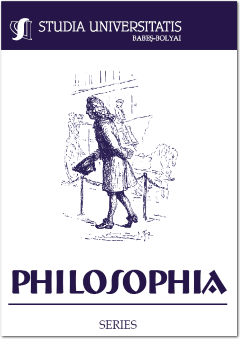IS INTENTIONALITY A BETTER CONCEPT THAN TELEOLOGY TO DESCRIBE BIOLOGICAL INDIVIDUAL BEHAVIOR?
IS INTENTIONALITY A BETTER CONCEPT THAN TELEOLOGY TO DESCRIBE BIOLOGICAL INDIVIDUAL BEHAVIOR?
Author(s): Raphael AybarSubject(s): Philosophy
Published by: Studia Universitatis Babes-Bolyai
Keywords: Autopoiesis; cognition; intentionality; machine; teleology.
Summary/Abstract: The author proposes that the phenomenological concept of intentionality is consistent with the idea that the living organism is structurally coupled with its environment, as stated by the theory of Autopoiesis of Humberto Maturana and Francisco Varela. This theory affirms that living organisms produce themselves as systems in response to the disturbances they experience in their environments, and takes their responses as primordial cognitive acts. It is argued that their responses are intentional since they are elemental ways of standing in a world. In the first part, it is explained what Autopoiesis is, how cognition works in living organisms, and what structural coupling is. In the second part, it is stated that living organisms cannot be understood in mechanistic terms since they respond to a teleology inherent to intentional beings. In the last part, it is discussed how structural coupling and intentionality are analogous, and why intentionality is more comprehensive concept than teleology to describe the structure of individual organisms.
Journal: Studia Universitatis Babes-Bolyai - Philosophia
- Issue Year: 63/2018
- Issue No: 1
- Page Range: 21-37
- Page Count: 17
- Language: English

